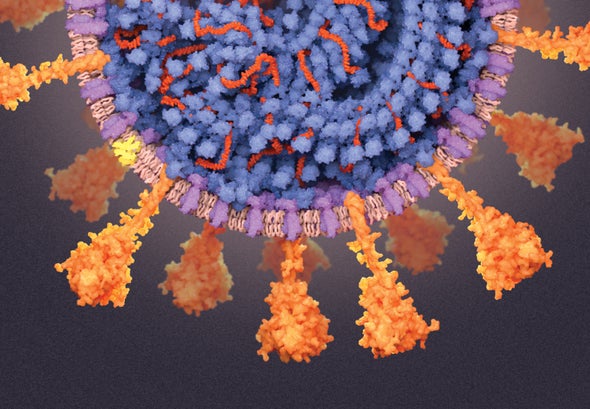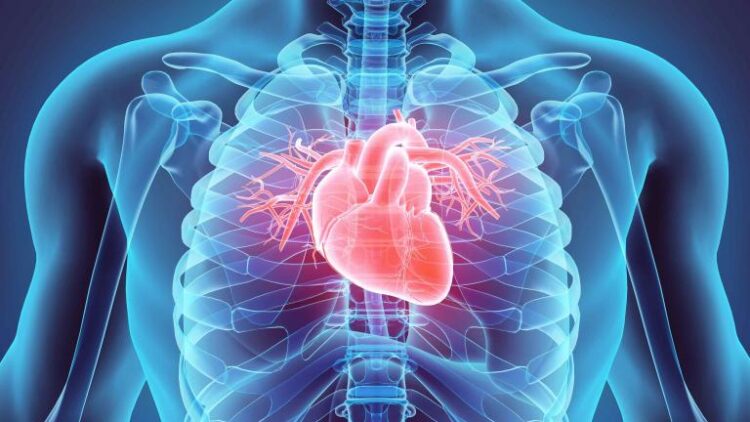According to doctors in Delhi, people who were infected during the second wave are experiencing cardiac muscle inflammation, heart attacks, and abnormal heartbeats.
Doctors reported not only heart attacks and strokes immediately after Covid infections, but a new study from the United States showed that the risk of heart diseases remains considerably high even a year later. Similarly, doctors in Delhi indicate that people infected during the second wave are experiencing cardiac muscle inflammation, heart attacks, and abnormal heartbeats.
A new study demonstrates that even a modest case of COVID-19 can raise a person’s risk of cardiovascular issues for at least a year following diagnosis. Researchers discovered that the incidence of several diseases, including heart failure and stroke, was much greater in people who had recovered from COVID-19 than in people who had not.
What are the potential side effects of COVID-19 on the heart?
The SARS-CoV-2 coronavirus causes COVID-19, a disease that damages heart muscle and impairs cardiac function.

This is due to several factors. The coronavirus connects to angiotensin-converting enzyme-2 (ACE-2) receptors on cardiac cells before entering them. High levels of inflammation circulating in the body can potentially cause heart damage. The inflammatory process that occurs while the body’s immune system battles the virus can harm certain healthy tissues, including the heart.
Coronavirus infection affects the inner walls of veins and arteries, causing blood vessel inflammation, damage to extremely tiny capillaries, and blood clots, all of which can obstruct blood flow to the heart and other regions of the body.
Covid-19’s heart rate-altering side effects-
If you experience a fast heartbeat or palpitations after taking COVID-19, you should consult your doctor. A brief rise in heart rate can result from a variety of factors, including dehydration. Make sure you’re getting enough water, especially if you’re suffering from a fever. A fast or irregular heartbeat might cause the following symptoms:
- Feeling your heart pounding in your chest quickly or erratically (palpitations)
- Lightheadedness or dizziness, especially when standing
- Uncomfortable chest
Is COVID-19 more likely to cause a heart attack?
That depends: doctors claim there are various distinct types of “heart attack.” A type 1 heart attack, which occurs when a blood clot blocks one of the heart’s arteries, is uncommon during or after infection with COVID-19.
“With COVID-19, type 2 heart attacks are more likely,” they explain. “This heart attack is triggered by increased cardiac stress, such as a rapid pulse, low blood oxygen levels, or anaemia since the heart muscle isn’t getting enough oxygen transported in the blood to complete this extra job.” This has been observed in patients who have had acute coronavirus disease, although it is less prevalent in those who have recovered.”

“Some persons had high amounts of a chemical called troponin in their blood during COVID-19, coupled with EKG (Electrocardiography)alterations and chest discomfort, according to lab testing.” Troponin levels that are elevated are a symptom of damaged cardiac tissue. This can occur as a result of a heart attack. After COVID-19, this is less prevalent.
Is COVID-19’s cardiac damage irrevocable?
If the symptoms are caused by a heart condition, the recovery time is determined by the degree of the injury. “Very few people experience a serious heart attack caused by COVID-19, such as an acute myocardial infarction, or MI.”
Despite this, some COVID-19 survivors might have small alterations in their heart muscle shown by cardiac imaging. Some research on athletes recuperating from the coronavirus has demonstrated scarring, although Post points out that some of these studies did not compare the findings to individuals who had not been exposed to COVID-19. It’s unclear how long these tiny alterations will last, or how they will affect heart health. Experts are working on methods and suggestions for which athletes should undergo cardiac testing before returning to play.
“High pulse rate months after infection”– Physicians Observed
Dr. Vivudh Pratap Singh, consultant of Interventional Cardiology at Fortis Escorts Heart Institute, said, “In our OPD, we are frequently seeing patients from the surge in cases in April-May last year with post-Covid sequelae in the long haul.”
He said patients experience a host of complications, such as myocarditis (inflammation of heart muscles), left ventricular dysfunction (a condition where the heart’s left ventricle chamber is damaged), pericarditis (inflammation of the sac covering the heart), and myocardial infarction (heart attack).
Dr. R.R. Kasliwal, chairman of the Clinical and Preventive Cardiology Department at Medanta -The Medicity Hospital said, “We know that Covid-19 results in cytokine storm and affects the heart. We know Covid patients come in with various heart conditions. But we cannot say for sure who will develop these long Covid symptoms and when. It can be after three months, six months, or a year. We are seeing patients from the previous wave still coming to the hospital with heart conditions; it is too soon to say if omicron will have a similar effect.”
Doctors recommend that everybody who has recovered from Covid, even if they had a lesser case, have a cardiac check-up six months after the infection, at least until researchers can figure out who is at risk of long-term Covid symptoms.
Also Checkout: How do Viral illnesses continue to be the major cause of human and animal suffering?
















